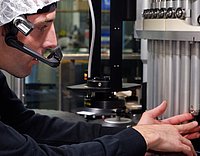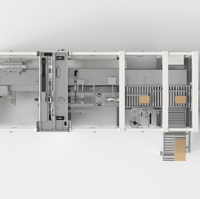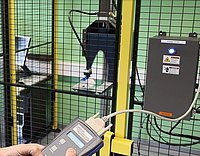
In the pharma manufacturing IT space, Industry 4.0 has been a growing theme that has driven our direction in the past few years. Thus far, the advancements made during this “4th industrial revolution” are providing benefits that, though promising, still lack concrete applicability for most pharma companies.
Specifically, vendors have been quick to develop Industry 4.0 offerings that, in most cases, are not actually 4.0 driven but rather re-branded 3.0 products. These offerings lack the innovative and disruptive component one should expect from true 4.0 innovations. This is only the result of the fact that they are committed to an innovation path of their own that will, with no doubt, bear fruits in the next future.
Pharma being a highly regulated industry, implementing modifications that impact the production process – or any aspects related to it – is subject to close scrutiny. Considering this, the ISPE European Pharma 4.0 Conference has demonstrated that pharma manufacturers, vendors and professionals have already started looking for viable applications of Industry 4.0 within their organizations, while ISPE continues to work toward better defining several aspects that characterize Pharma 4.0.
This topic is still far from being completely analyzed and the progress thus far is likely just the first steps in a long journey with a hazy final destination. Regardless, there are specific key messages emphasized during the conference that provide some direction along this uncharted path:
- Not just automation: Automation is not – and will not be – the only element to transformative Industry 4.0 programs. Several other key factors will play a fundamental role in shaping pharma smart factories of the future. Quality, workforce, efficiency, integration and collaboration are just a few topics organizations must address to ensure their Pharma 4.0 programs will be both fruitful and sustainable.
- Collaboration: More and more, we’ve been hearing the term “value supply chain,” and it is now clear that Industry 4.0 will provide its full effects only if companies proactively start working with partners in an integrated supply chain. This means creating a system where information as well as raw materials and products flow fast and freely. Machine and equipment vendors must take an active role in such streamlined systems.
- “By Design”: Industry 4.0 will involve not only innovation and technological breakthroughs, but also improvements that allowing pharma manufacturers to incorporate specific features in machines, software or processes at their point of creation. For example, many of us have heard about Data Integrity by Design and Security by Design that complement the Quality by Design paradigm, already established in 2004 but with very few real application cases so far.
- Value what you already have: Certainly, a meaningful Industry 4.0 implementation must bring to factories technological innovations in the form of new equipment, new software and new services that seamlessly interact in a smart factory fashion. However, we shouldn’t forget that information collected thus far has value and should not be discarded. Advanced analysis employing new techniques can be performed on already existing data sets, which can be mined to provide useful, production-relevant insight.
- A “We can do it” attitude: Far from blind optimism, this simply means believing in the upsides of Industry 4.0 enough to find the most logical next steps for our organizations – and to see them through to implementation. We should not be discouraged and everyone should remember that being disruptive can allow us to find new and radical solutions to old and deeply rooted problems.
- The “H-factor”: Though Industry 4.0 may seem all about machine, integration, methodologies and processes, it is really based on the most powerful asset any company could have: its workforce. The human factor is therefore a key success driver for any 4.0 implementation. The objective of Industry 4.0 is not to fire people and replace them with faster, more efficient machines, but rather allowing humans to work on real value-added activities where the creativity and problem solving capabilities of the most advanced machine in the world – the human brain – can be utilized to its fullest potential.
Most likely, we have a long and bumpy road ahead, but the ISPE Conference discussed how we can factor in the experiences and knowledge of our 200+ professionals in order to help shape the future of the industry. ISPE will continue working on Pharma 4.0 topics via its Special Interest Group, which is currently analyzing several aspects of the Industry 4.0 implementation in the pharmaceutical space. A white paper will be produced in early 2018, serving as a first step in the creation of a specific ISPE Guideline in 2019.






